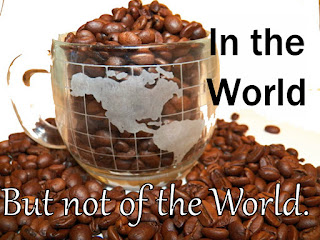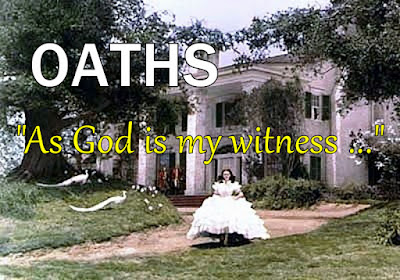FEAR AND TRUST
For Lent, our church is studying Twenty-four Hours that Changed the World by Adam Hamilton. We continue with Christ's condemnation by the Sanhedrin.
Mark 14:53-72
The night following the
Last Supper was supercharged with emotions – confusion, anger,
disappointment and fear. Fear motivated so many of the actions of
the people that night.
Fear prompted Peter to
carry a sword with him that night to the Garden of Gethsemane; fear guided his hand when he sliced off another man's ear. The
disciples fled for their lives when they had a chance, and Peter
denied Christ out of a sense of self-preservation.
The members of the
Sanhedrin, the religious ruling council, were also driven by fear. Jesus
threatened them and their way of life. If Jesus led a successful
uprising, would they lose their power and their status? Worse yet,
if he only managed to anger the Romans, would they too end their
lives on crosses?
When they had Jesus
beaten, they had him blindfolded. Was this an act of cruelty, or
were they afraid to look into Jesus' eyes and see the men they had
become?
Jesus, in the dark
night of the soul at the rock in Gethsemane, was afraid, too. Christ
is fully divine, but he is also fully human and took our humanity
with him to the Garden where he wept and agonized over was waiting
for him – betrayal, physical torture, mocking and the humiliation
and pain of death by crucifixion.
The dark night of the
soul is when we are wrestling with our own sin or a hard decision, or
we find ourselves in the midst of desolation, a situation where we
feel afraid, isolated or abandoned, confused or lost.
The man we have come to
know as St. Patrick found himself struggling through his own time of
desolation. At the age of sixteen, Patrick, a Christian, was
kidnapped from his home in England by Irish pirates. In Ireland, he
was sold as a slave to a Druid, a pagan, priest. Patrick was put to
work as a shepherd.
Alone and afraid in a
foreign land, he felt God was testing his faith. Instead of giving
up and giving in, Patrick chose to continue to trust in God. I don't
think that it meant that Patrick wasn't afraid at times, but when
Patrick surrendered himself to the will and care of God, just as
Christ did, he found peace and courage in the midst of that fear.
From the
Amplified Bible, 2 Timothy 1:7:
“For
God did not give us a spirit of timidity (of cowardice, of craven and
cringing and fawning fear), but [He has given us a spirit] of power
and of love and of calm and well-balanced
mind and discipline
and self-control.”
Fear
robs us from the ability to make wise decisions, to sense the
presence of God with us and to experience peace and hope. As God
leads us through the dark nights of our souls or through our times of
desolation, God's grace frees us from the oppression of fear. We may
feel afraid, but fear does not have control over us. God is greater
than fear, and we can trust in God's grace that supplies us with
power, love, calm and clear thinking.
Whether
we are overwhelmed with impossible circumstances or a God calls us to
do something that scares the socks off us, fear does not have to rule
our lives. With Christ as our example, we can confidently believe in
the love of God and step out in faith into the future God has for us.
Through
Christ's life, death and resurrection, we are freed from slavery to
sin and death and from
the power of fear. In the most challenging of times that threaten us
and our faith, God has given us a spirit of love, power, wisdom and a
sense of peace in all things.



Comments
Post a Comment